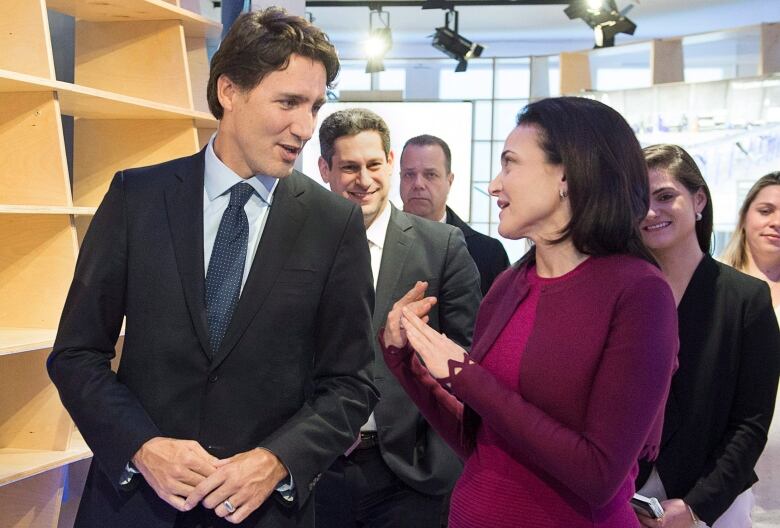How safe are Canada's elections from fake news on Facebook?

As investigations into potential Russian interference in the 2016 U.S. presidential elections continue, last week's indictment charges marked a major turning point — both in politics and on the world's largest social media platform.
Facebook's vice-president of ads Rob Goldman addressed the renewed criticism of his company on Twitter, adamant to point out that ads placed were to primarily to sow distrust in American institutions.
Most of the coverage of Russian meddling involves their attempt to effect the outcome of the 2016 US election. I have seen all of the Russian ads and I can say very definitively that swaying the election was *NOT* the main goal.
—@robjectiveKevin Chan, Facebook Canada's head of public policy, said Goldman's comments were not a reflection of the company's views.
"Rob was expressing his own views," he told The Current's Anna Maria Tremonti.
"I think we've been very clear that we stand by the findings of the Special Counsel."
- CBC News: Special counsel Mueller files new charge in Russia probe
- CBC News: Advertisers warn social media to step up, or they're out
With the next Canadian election on the horizon, officials warn we could be vulnerable to electoral manipulation as well. Canada's Communications Security Establishment (CSE) has already warned it is "very likely" outside groups will attempt to influence the 2019 election.
Cybersecurity and misinformation
The CSE provides a report two years in advance of an election to lay out any potential threats to the upcoming vote's integrity.
Chan said they have identified two issues that Facebook may play a part in.
"Cybersecurity issues, [such as] somebody hacking into your profile, hacking through email and then taking control of your online persona — that's one challenge. And the other one that they identify is misinformation."
In response, Facebook has announced a new Canadian Election Integrity Initiative to "ensure the platform is a space for authentic civic engagement" and addresses the two issues that have been highlighted.
Government pressure
Last week Prime Minister Justin Trudeau warned Facebook it could face strict federal regulations in the future, according to the Toronto Star.
Taylor Owen, assistant professor of Digital Media and Global Affairs at the University of British Columbia, says the latest Facebook initiative could help shed light on advertisers' use of the platform. However, he argued, it's not quite transparent enough.

"Without strong government pressure and oversight and regulation of what they're doing, they're making the decisions about what they are making transparent and what they're not," he said.
According to Owen, one of the issues with these platforms is how these platforms are structured — that, in fact, they are designed to be used nefariously.
"It is the data that allows ads to be targeted, it is the data that fuels the algorithm that spikes engagement that drives the divisiveness of content, it is the data that has allowed these companies to largely monopolize the internet."
- The Current: Why regulating Facebook is inevitable
- CBC News: Google uncovers Russia-backed ads on YouTube, Gmail
In Europe, Owen pointed to significant changes that have been made to take some of the responsibility away from the platforms that govern themselves.
"So giving each individual citizen in Europe the right to decide whether their data is collected by companies or not and allows them the mobility to take that data and give it to another company for example that wants to use it in a different way, really changes this structure."
Listen to the full conversation including tech policy reporter David McCabe at the top of this page, where you can also share this article across email, Facebook, Twitter and other platforms.
This segment was produced by The Current's Amra Pasic and Alison Masemann.